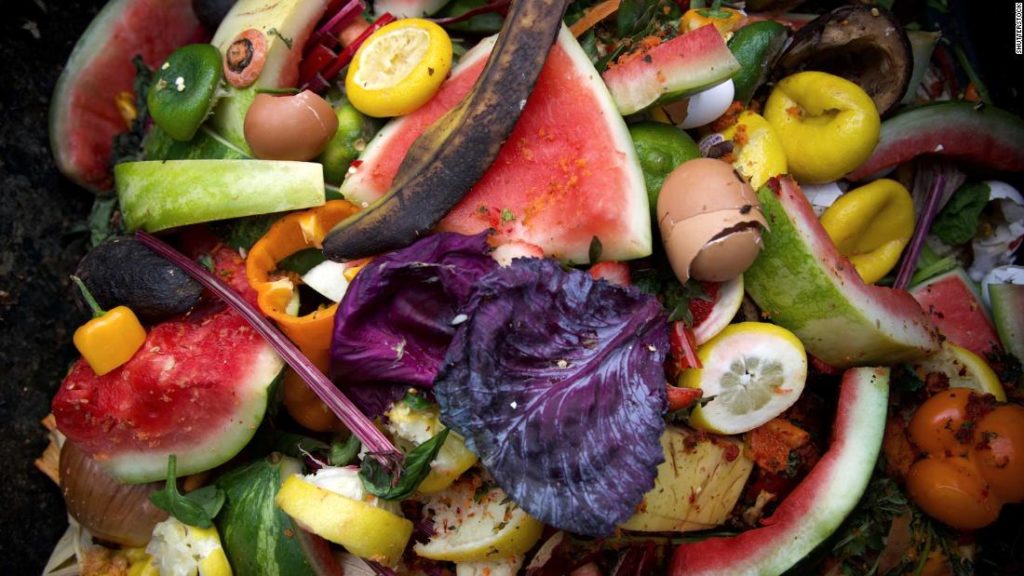Food lost on farms amounts to 1.2 billion metric tons, with a further 931 million metric tons wasted by retailers and consumers. The remainder is lost during transport, storage, manufacturing and processing.
The updated figures indicate that 40% of all food produced goes uneaten, according to the study, which attempts to quantify the amount of food wasted on farms for the first time in a decade.
“This report shows us the problem is likely bigger than we had thought,” he added.
According to the study, food waste accounts for 10% of all greenhouse gas emissions, higher than a previous estimate of 8%.
“Producing food uses a huge amount of land, water and energy, so wasted food significantly impacts climate change,” the report said.
Despite its outsized effect on the environment, just 11 of the national carbon plans submitted by 192 signatories to the Paris climate agreement include measures to address food loss and waste.
Most of the plans that do come from African nations tackling post-harvest losses, even though farming in more industrialized nations, with higher levels of mechanization, is a bigger contributor to food waste than previously thought.
Richer countries in Europe, North America and Asia contribute 58% of wasted harvests globally despite having only 37% of the global population, according to the report. Yet efforts to reduce food waste in wealthier countries tend to focus on retail and consumption.
“Farm-stage food loss is a significant but overlooked food waste hotspot,” the report said. The reasons for the waste include a disconnect between markets and farmers, which can lead to mismatches in the volume of production, the types of crops planted and the timing of harvest.
Unfair trading practices and the higher priority given to exported crops by farmers and governments over those for domestic consumption are also factors.
The report calls on governments and the food industry to set food waste reduction targets, measure and report waste and devise strategies to address it within operations and supply chains.
Tesco CEO Ken Murphy said that several of the retailer’s suppliers will report on their own farm food loss and waste for the first time this year, “helping us to tackle waste in the earliest parts of our supply chain.” The company has been working with 71 of its largest global suppliers to reduce food waste, reporting a reduction of more than 40% when compared to a 2016-2017 baseline, Murphy added.
You may also like
-
Afghanistan: Civilian casualties hit record high amid US withdrawal, UN says
-
How Taiwan is trying to defend against a cyber ‘World War III’
-
Pandemic travel news this week: Quarantine escapes and airplane disguises
-
Why would anyone trust Brexit Britain again?
-
Black fungus: A second crisis is killing survivors of India’s worst Covid wave

